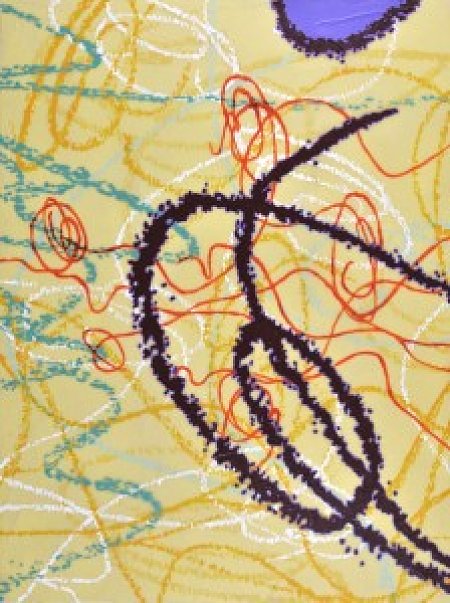
Numbers
When I entered Olga’s apartment after her death, partially for memories, partially for my research, to determine what is left of a person who has departed this world forever, I saw that the neighbors had already carried everything out. But they took only parts of Olga’s story, and the story will never be complete, since her things will lose their voices in strangers’ hands.
The belongings from Olga’s apartment, a wardrobe or a trunk, will have no meaning to the neighbors, because who in their right mind would say to their growing kids: “We killed Olga with silence and passivity when anti-Semitic drawings started appearing in print and then spilled from the pages, and then we took not only her life but her belongings as well?” No, these things will be just things, useless things without words behind them. The only piece of remembrance left for me in that ransacked apartment was this telegram, and this telegram has words from the famous Russian scientist, words that meant nothing to my uneducated neighbors, who still valued knowledge and respected educated people, but only when it was convenient and sanctioned by newspapers; when newspapers said that Jews were second class, that became so in these people’s minds.
I’m sitting in emptiness and, only with my memory, with a familiar feeling, I’m entering my former flat.
I see marks on the door frame, where my father checked, with a pencil, how tall I was; I see my books on the shelf, the books that my father forbade me to read in a bathroom or next to a plate with risotto; I see a painting on the wall with fruits in a basket and a duck with a long neck, whose head is hanging very low from the table (I always thought this too brutal, but father said it was by a famous painter); I also see the ceramic bowls my father collected; each piece means something only for me.
If we put all these bowls in one large room, collected from each person living in our home, they will lose all the words behind them. If we collect all the jewelry from people’s homes and fill all these bowls, it will be only a shiny material with no depth, cold gold without emotions.
Unable to enter my apartment these days, I can recreate it from memory and, if I write about it by simply naming the objects, the story will make sense only to somebody who lived in a similar flat, in a similar situation, in the same town, whose things, like mine, were taken from them. People who, like me, were placed in a strange train, crammed together as closely as sardines in a can but who never became truly close–only physically, never emotionally–and who, on that train, had only memories of their apartments. All I had besides this was the memory of my father who disappeared.
Yet, together with a few necessities, I was able to sneak in pencils and notebooks, and I force myself to write. I try to be oblivious to the misery and awful things around me, because I have to focus on literature, and I believe that since I was given this gift as a writer–a gift even more individual and intensely personal than objects with stories behind them–I will survive as long as I write.
V.
I was born twenty-two years ago, and, from an early age, I knew that a large destiny awaited me.
From a very early age, I was interested in book reading, even my father’s medical encyclopedias with skeletons and veins and awful ruptures of the body depicted on its colorful pages. When I was five years old and he taught me how to write, I immediately wrote a letter to my mother in my childish scrawl, and since my mother at the time was still with us (though already planning, through an underground tunnel of her soul, to escape), she was touched.
The letter said the following: “My dear mother… yesterday you had a headache… do you feel better? Feel better, papa and me love you.” It was not grammatically correct, not at all, but these were simple words and they touched a spot in my mother’s soul, and when she ran away she took with her that letter and also my photo.
When I was eleven, I made my own “book” by putting together, with a needle and bright red thread, notebook pages. The story–illustrated by nothing other than snow–was about two snowmen who lived in their own kingdom. When I turned fifteen, my father was asked to write articles for a magazine covering the history of pharmacology, and I helped to write those articles while laughing and making fun of the readers who would seriously read what we had written in such a funny manner, between supper and falling asleep.
Among those articles were a vignette about Tibetan medicine, a book of medical potions penned by the Arab doctor Al Beruni, and a book describing medications useful for guarding oneself against dogs’ madness. My love for the written word was so strong that I enjoyed even helping my father to write these articles, not only fiction. Thinking of my father, I cannot forget his face when he said his last good bye to me a month ago…
